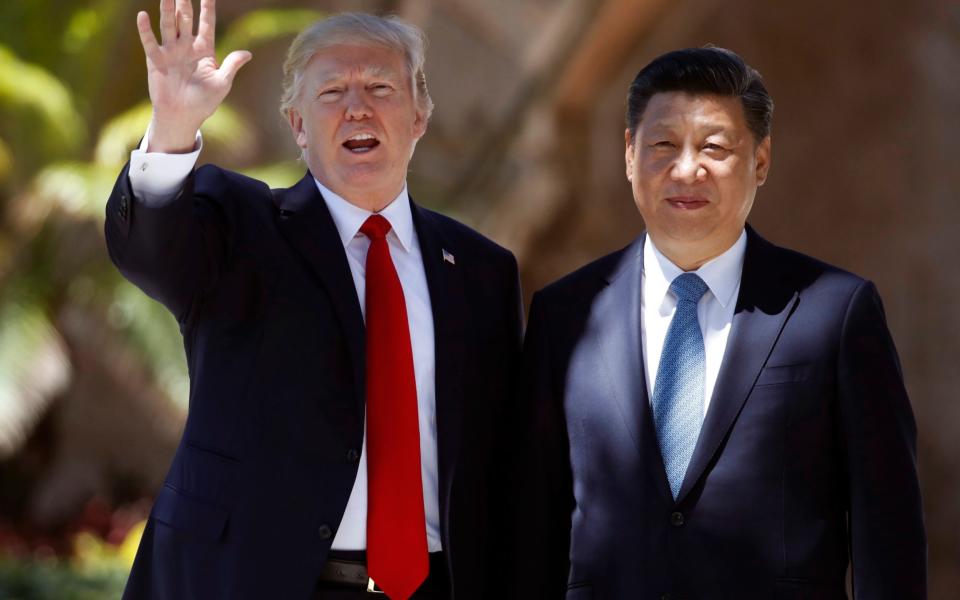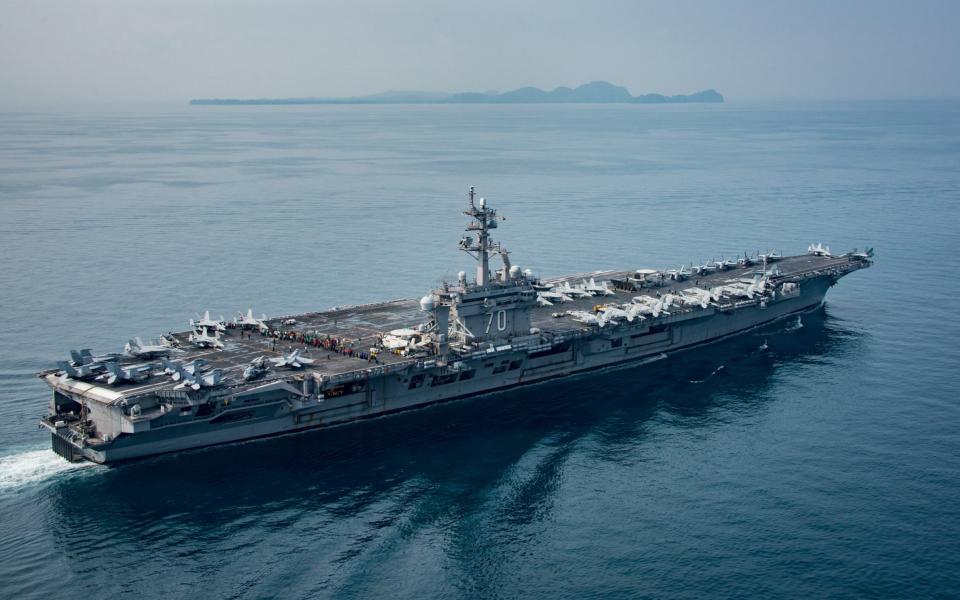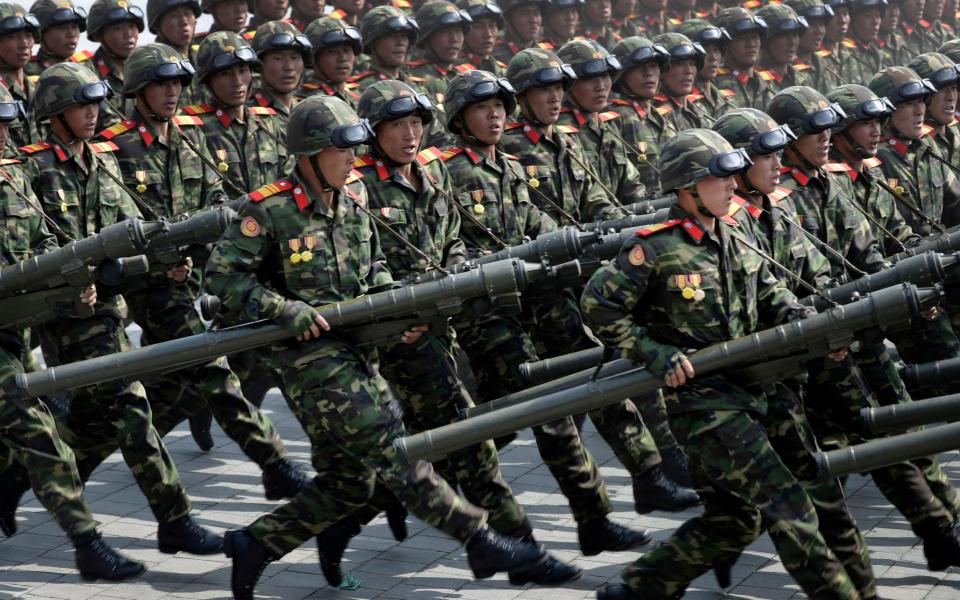US Senate summoned to the White House for North Korea briefing, as China’s Xi Jinping urges restraint from Donald Trump

President Donald Trump will take the unusual step of summoning all 100 senators to the White House on Wednesday for a briefing on the continued concern over North Korea.
The senators will be briefed by Rex Tillerson, the secretary of state, and James Mattis, the defence secretary. Dan Coats, director of national intelligence, and General Joseph Dunford, chairman of the joint chiefs of staff, will also speak to the assembled politicians.
And, while top administration officials routinely travel to Capitol Hill to address members of Congress on foreign policy and national security matters, it is unusual for the entire 100-member Senate to go to such an event at the White House, and for those four top officials to be involved.
News of the meeting came shortly after Nikki Haley, US ambassador to the UN, outlined American “red lines” in their dealings with the rogue state.
Asked when the US would strike, she replied: "If you see him attack a military base, if you see some sort of intercontinental ballistic missile, then obviously we're going to do that."
Xi, Trump discuss ties, #KoreanPeninsula situation over phone https://t.co/46iRNo7mtSpic.twitter.com/dg1AsocNQF
— China Xinhua News (@XHNews) April 24, 2017
Speaking on breakfast television on Monday, she said the US was not looking for a fight and would not attack North Korea "unless he gives us reason to do something."
Her words will do little to reassure China – North Korea’s sole ally.
Xi Jinping, the Chinese President, urged Donald Trump to show restraint over North Korea on Monday, as a US aircraft carrier group heads towards the region amid fears that Kim Jong-un’s regime was set to carry out a nuclear test.
Mr Xi made the appeal as Beijing becomes increasingly concerned that strong rhetoric between Washington and Pyongyang could escalate into conflict.
North Korea prepares to mark the 85th anniversary on Tuesday of the founding of its Korean People's Army – a possible date for the regime to test military hardware.
President Xi told the US president that with a “rapidly changing international situation”, it was important for Beijing and Washington to “maintain close contacts and make exchanges on key issues”.
Mr Trump is growing increasingly impatient over North Korea’s nuclear ambitions, and concerns are growing that he could take action against the rogue regime.
In his second phonecall with the US president since the pair met in Florida earlier this month, Mr Xi said he hoped “all parties would exercise restraint and avoid doing things that would aggravate tensions on the peninsula.”

He added that “all parties should adopt a responsible attitude” in achieving “the same goal” – halting Pyongyang’s nuclear ambitions.
US vice president Mike Pence said on Saturday that a strike group led by the US Carl Vinson aircraft carrier would arrive in the Sea of Japan, which is between Japan and South Korea, in a “matter of days”.
It was heading north in the western Pacific Ocean conducting joint exercises with Japan's Maritime Self-Defence Force, reports said Monday.
South Korea is also reported to be considering taking part in drills.
Satellite imagery analysed by 38 North, a Washington-based monitoring project, found some activity at North Korea's Punggye-ri nuclear test site last week.
However, the group said it was unclear whether the site was in a "tactical pause" before another test or was carrying out normal operations.
Tensions escalated further on Sunday when North Korea detained a US citizen as he attempted to leave the country.
Chinese President #XiJinping urges all parties to exercise restraint on #DPRK issue in phone conversation w/ @POTUS@realDonaldTrump on Mon pic.twitter.com/TuDqxZAlhF
— People's Daily,China (@PDChina) April 24, 2017
President Trump has sought China’s help to rein in North Korea’s military programme, but has also vowed to act unilaterally if it failed to do so.
China, the North’s only diplomatic ally and trading partner, banned imports of coal from its neighbour in mid February after tough UN sanctions were imposed on Pyongyang.
Chinese media has raised the possibility that Beijing could choke the country of crude oil, a potentially devastating move for Kim's regime.
China’s increasing opposition to its neighbour’s military ambitions drew an angry response from North Korean media over the weekend.
The state-owned KCNA news agency suggested Beijing was “dancing to the tune of others” and warned China of “catastrophic consequences”.
The commentary is only the second to be published by Pyongyang’s official media to criticise Beijing in the same language that it commonly uses for traditional enemies, South Korea and the US.
It comes two months after KCNA launched a broadside over the coal ban.

China’s Global Times newspaper hit back on Monday, accusing KCNA of seeking to convince China to change its opposition towards a nuclear test.
“No matter how many articles KCNA publishes,” the state-run outlet warned.
“Whatever future measures North Korea takes, Beijing's stance will not be affected.”
The daily tabloid said any such nuclear test would result in “further isolating Pyongyang itself".
Meanwhile, the Rodong Sinmun, the official newspaper of the North's ruling Workers' Party, said in a commentary on Monday, that the US “should not run amok and should consider carefully any catastrophic consequence from its foolish military provocative act.
"What's only laid for aggressors is dead bodies and deaths," the newspaper continued.
North Korea's nuclear history: key moments Register Log in commenting policy

 Yahoo News
Yahoo News 